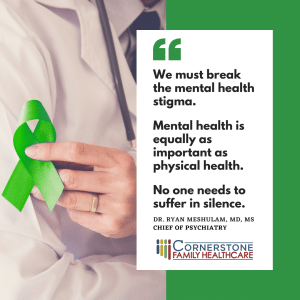 Provider blog by Monica Francis, PA-C, MS
Provider blog by Monica Francis, PA-C, MS
Runny nose. Itchy watery eyes. Sneezing, sneezing, and more sneezing. It doesn’t have to be this way though. There are ways to manage the health of yourself and your family for allergy season.
Common seasonal allergies are the body’s allergic response to an outside allergen. Grass, pollen and mold are the most common triggers of seasonal allergies. Spring allergies begin in February and last until the early summer.
Climate conditions such as humidity, wind, and rainfall can affect different allergen levels.
Allergies are usually self-diagnosable. Symptoms include sneezing, runny nose, red, watery, and itchy eyes. People may also experience pain in the ear, nasal congestion, loss of smell, redness, runny nose, post-nasal drip, sneezing, or stuffy nose. The eyes may become itchy, puffy, red, or watery. It is also common to start breathing through the mouth or wheezing, coughing, fatigue, headache, itching, phlegm, or throat irritation.
There are more than 3 million cases per year in the United States of seasonal allergies. They can be treated with common over-the-counter antihistamines. Self-care includes avoiding allergens and nasal washing with saline water/spray. Severe allergies may require consulting with your doctor and possibly skin testing to find out about specific allergens and how to better treat them.
Medical treatments include prescription antihistamine decongestants and in some cases a procedure called desensitization which reduces allergic reactions by gradually increasing doses of the substance causing the reaction by injection. Consult with your primary care physician who may refer you to an allergy and immunology doctor, pulmonologist or otolaryngologist for further evaluation and treatment.
You may also call Cornerstone Family Healthcare at (845) 563-8000 or visit www.cornerstonefamilyhealthcare.org for more information.




